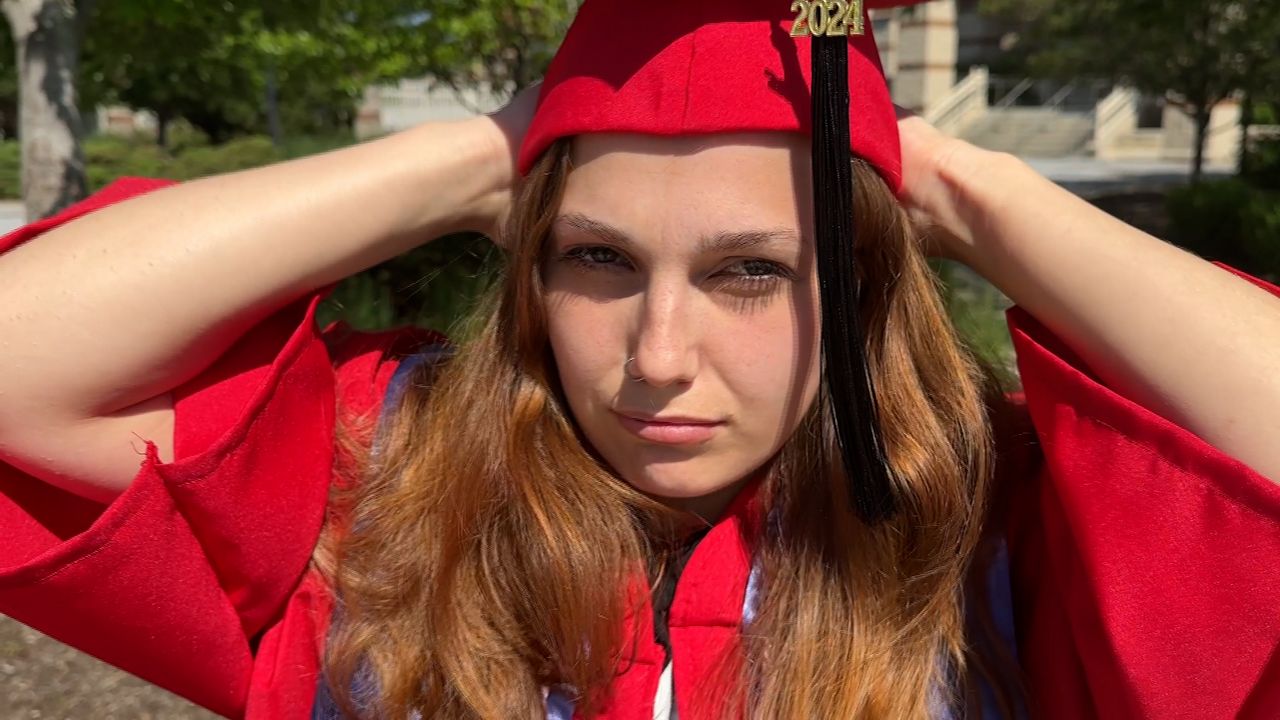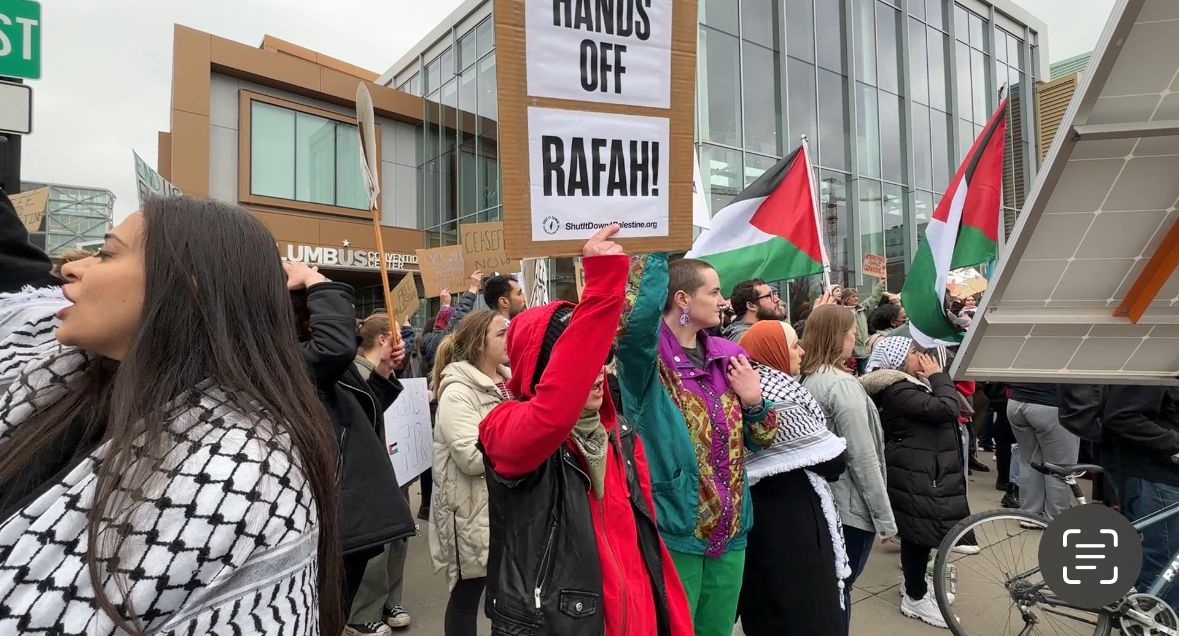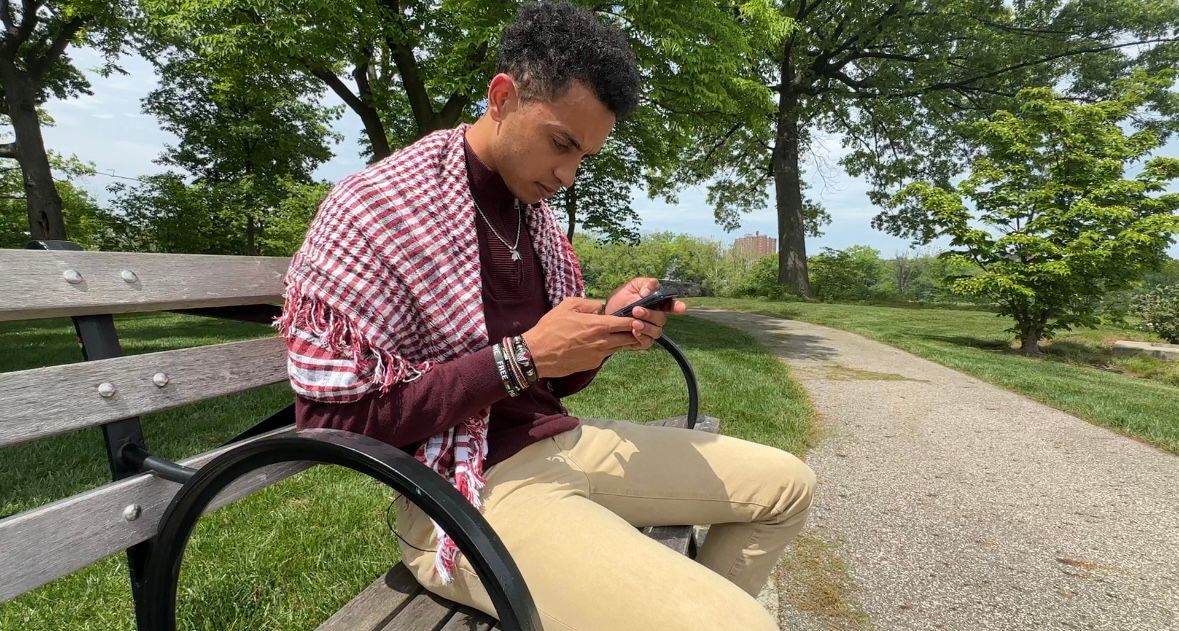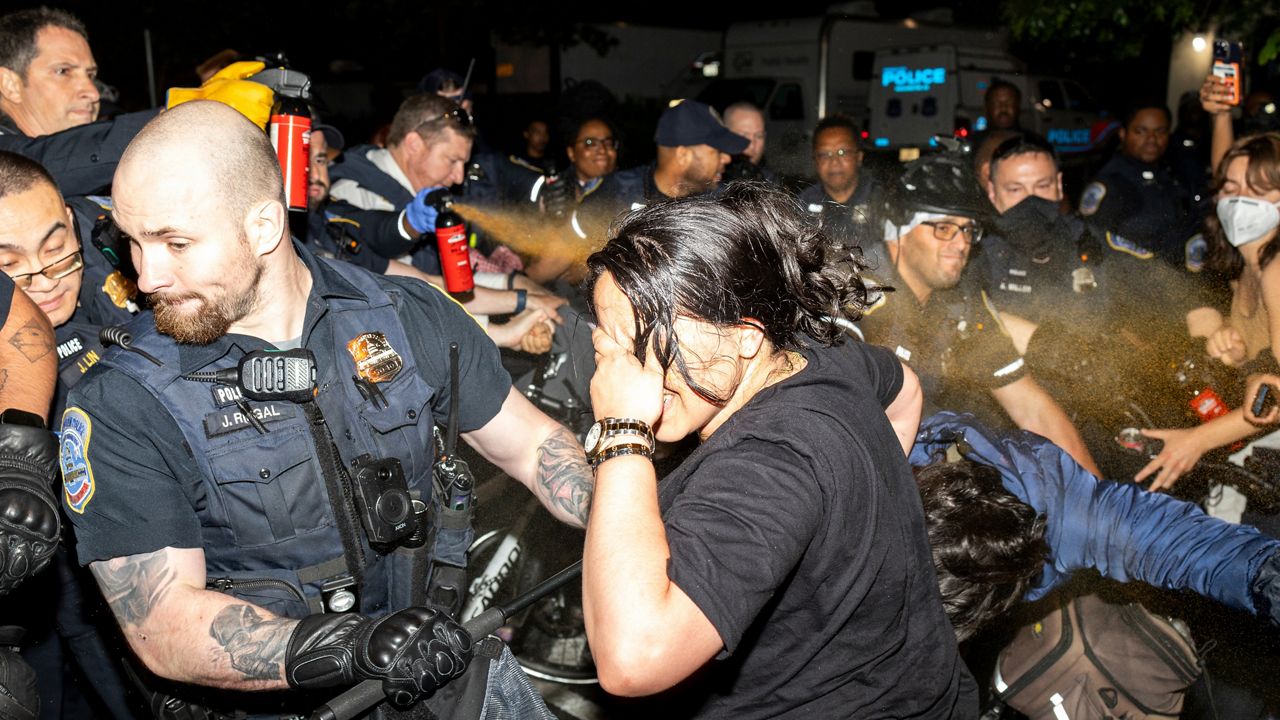COLUMBUS, Ohio — Hundreds of Muslims came together in prayer Friday on The Ohio State University’s South Oval.
Some Muslim students on OSU’s campus told Spectrum News 1 they felt their First Amendment rights were violated on April 25, when their prayer service was broken up by police who were responding to the pro-Palestinian encampment set up on the school’s campus. Hundreds of people returned to that same spot where the encampment was and where dozens of people were arrested on campus.
Friday is considered the most significant day of the week in Islam. Normally, Muslims would be inside a mosque, but on May 3 students, faculty and community members decided to hold the prayer publicly.
Jamil Aboushaar, a junior at OSU and a member of the Muslim Student Association on campus, said the event was about coming together as a community to advocate for peace overseas and to motivate everyone to stay strong in their faith.
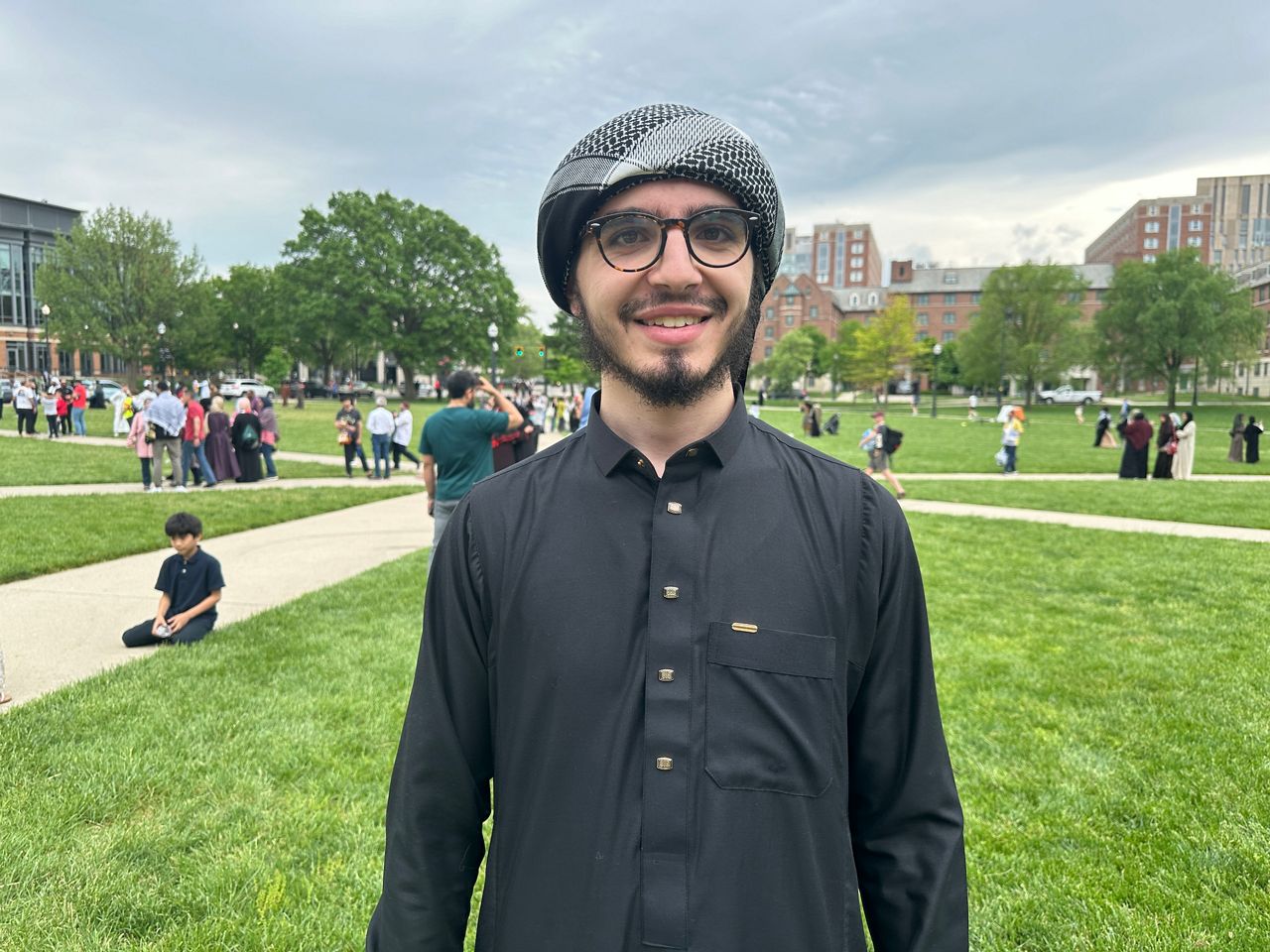
“Message of unity, a message of peace,” Aboushaar said. “We're not anti-Semitic. We're not anti-Semitic by calling for an end to genocide. Rather, we're advocating for humanity more than anybody else is, more than the other side is. We're advocating for, you know, just justice and peace for everybody, no matter their religious background, no matter their cultural background, no matter their ethnic background.”
Yasir Qadhi, a nationally renowned speaker and American Muslim scholar, led the Khutbah and prayer.
“It is high time that we, not just the Muslims of this land, but people of conscience, people of integrity, people who care about their country and that’s all of us, it is high time that we change the realities of what our country is doing over there,” Qadhi said. “All Muslims, and people of all faiths, we shall not and we cannot tolerate hatred and preaching hatred of another faith tradition. And we will not tolerate anti-semitism…We will not allow voices of anti-semitism or voices of Islamophobia to be given a platform. However, we will not be intimidated when criticism of a country is falsely accused of being anti-semitic.”
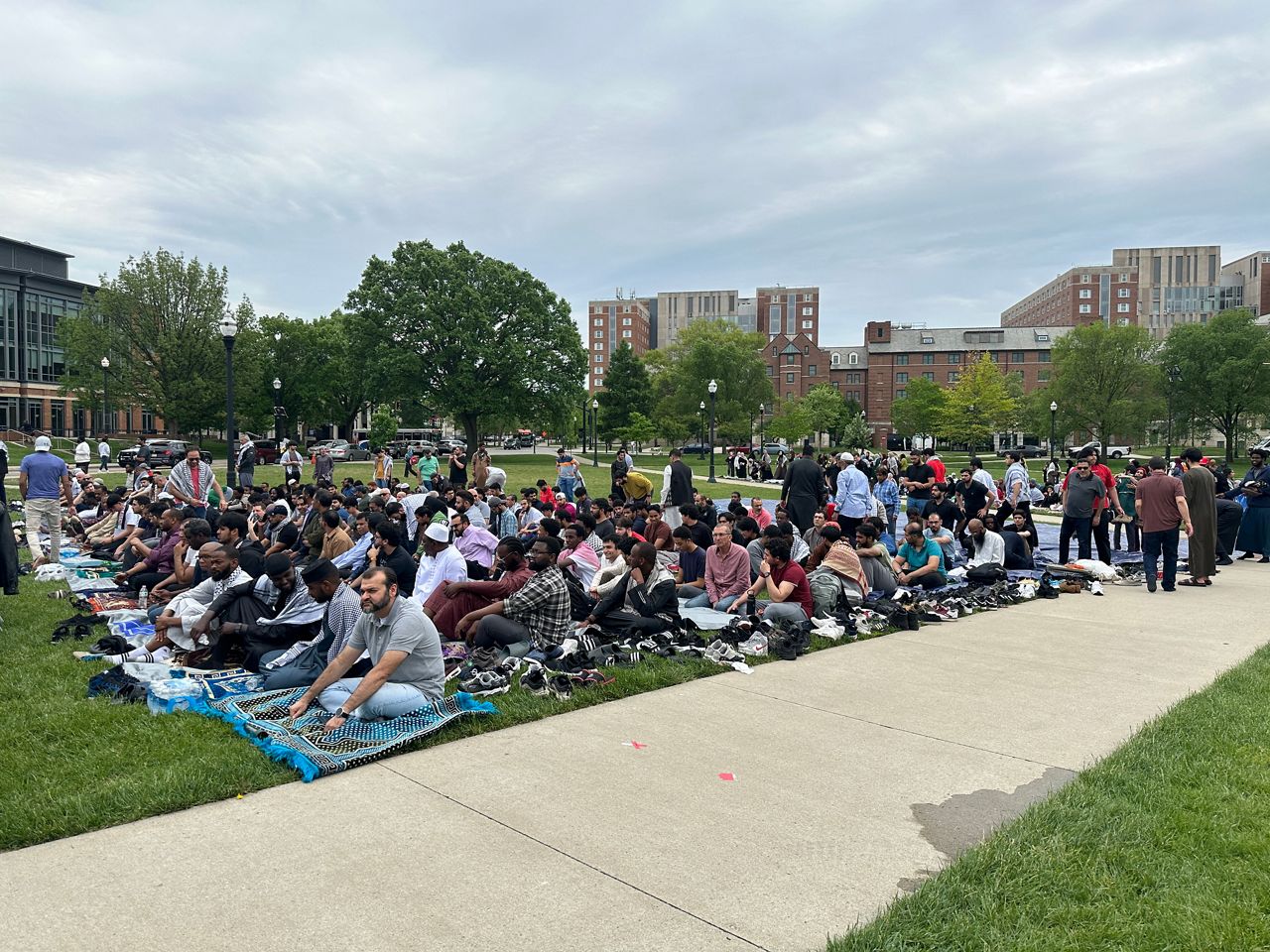
While their latest community prayer was happening, Ohio treasurer Robert Sprague announced that the state is buying an additional $30 million worth of Israeli bonds.
The move comes as pro-Palestinian protests continue to ask schools and universities to divest from companies doing business with Israel.
That decision is not sitting well with Aboushaar, who said he doesn’t want Ohio’s tax money being spent overseas.
“It’s just as concerning every time I read it,” Aboushaar said. “Where there's more bills being passed, more money being sent over and, you know, that's why we're out here. We're out here to advocate and to stop that. We're tired of our money that we put we put into the system to be used against us overseas. And not even just against us, but to all, like all genocides, all killing any, any funding of, you know, weapons or anything worldwide that America takes place in, we’re against all of it.”
Spectrum News 1 reached out to both the Jewish Federation of Cleveland and Jewish Columbus to get their reaction to the announcement, but neither provided us any comments. Meanwhile, we asked the treasurer’s office whether it has any concerns that this purchase will be seen as an inflammatory move by those who are opposed to investments in Israel during a time of war. They too did not respond.






